Six Trans Programmers Who Shattered the Lavender Ceiling
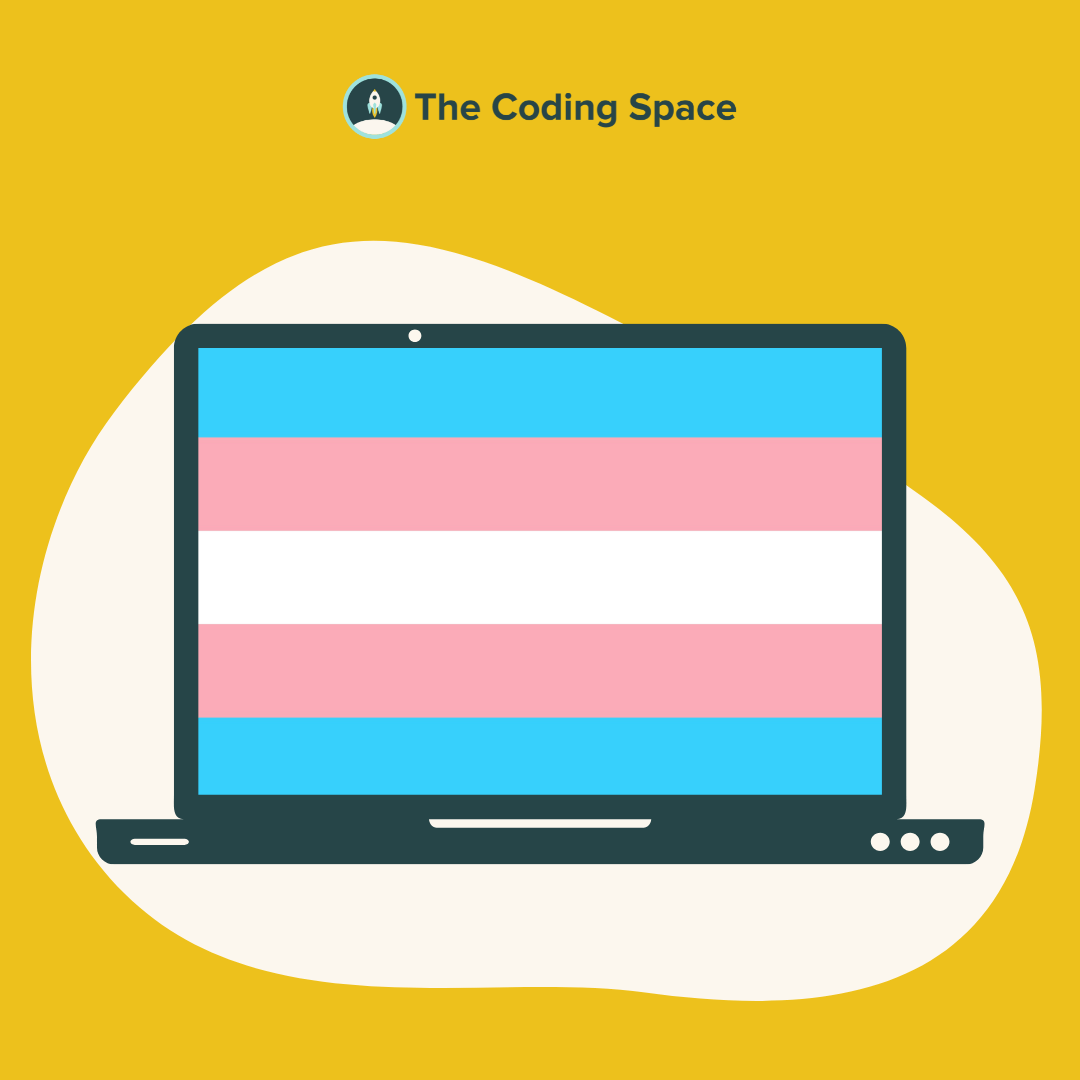
Celebrating International Transgender Day of Visibility
Each year on March 31st, the world celebrates International Transgender Day of Visibility, a day to recognize the many contributions that trans individuals have made to every sector of society — and coding is no exception!
In most conversations about STEM diversity, many (including us here at The Coding Space) spotlight the lack of women in the industry, but these conversations often treat cisgender women as the only marker of gender diversity, leaving trans and gender-nonconforming people out of the equation. But trans people have been instrumental to the tech industry since its inception. Whether you’re on your computer, your tablet, or your phone right now, if you’re on the Internet, you have trans folks to thank for that.
We at TCS believe that our digital landscape will only be further enriched by embracing and uplifting the incredible trans programmers in our communities. To that end, we are highlighting six amazing trans coders past and present who have shattered the lavender ceiling in tech.
DANIELLE BUNTEN BERRY
(1949-1998)
Danielle Bunten Berry was a pioneer game developer who created one of the first successful multiplayer games on the Atari platform. Decades before blockbuster multiplayer games like League of Legends came to dominate gaming, Bunten Berry designed the groundbreaking multiplayer game M.U.L.E. M.U.L.E. sold 30,000 copies across various computer platforms and, over the years, it has emerged as one of the greatest influences on the genre's greatest designers. Ahead of her time in more ways than one, Bunten Berry insisted that the future of gaming was interconnectedness, and her vision has proved incredibly prescient. In 1998, she was awarded the Lifetime Achievement Award by the Computer Game Developers Association. In 2007, the Academy of Interactive Arts & Sciences chose Berry as the 10th inductee into its Hall of Fame.

ANGELICA ROSS
(b. 1980)
Angelica Ross is a transgender woman who is a self-taught coder, web developer, trans advocate, and actor in Pose and American Horror Story. She also founded TransTech Social Enterprises, an incubator that offers tech training to underserved LGBTQ communities “with a focus on economically empowering” transgender men and women. Ross hopes to inspire more people in marginalized communities to pick up coding skills: "So many times, LGBTQ+ and marginalized people are not afforded the opportunities to be creative because life is always at our heels … but technology is that one thing that can give you your creativity back."
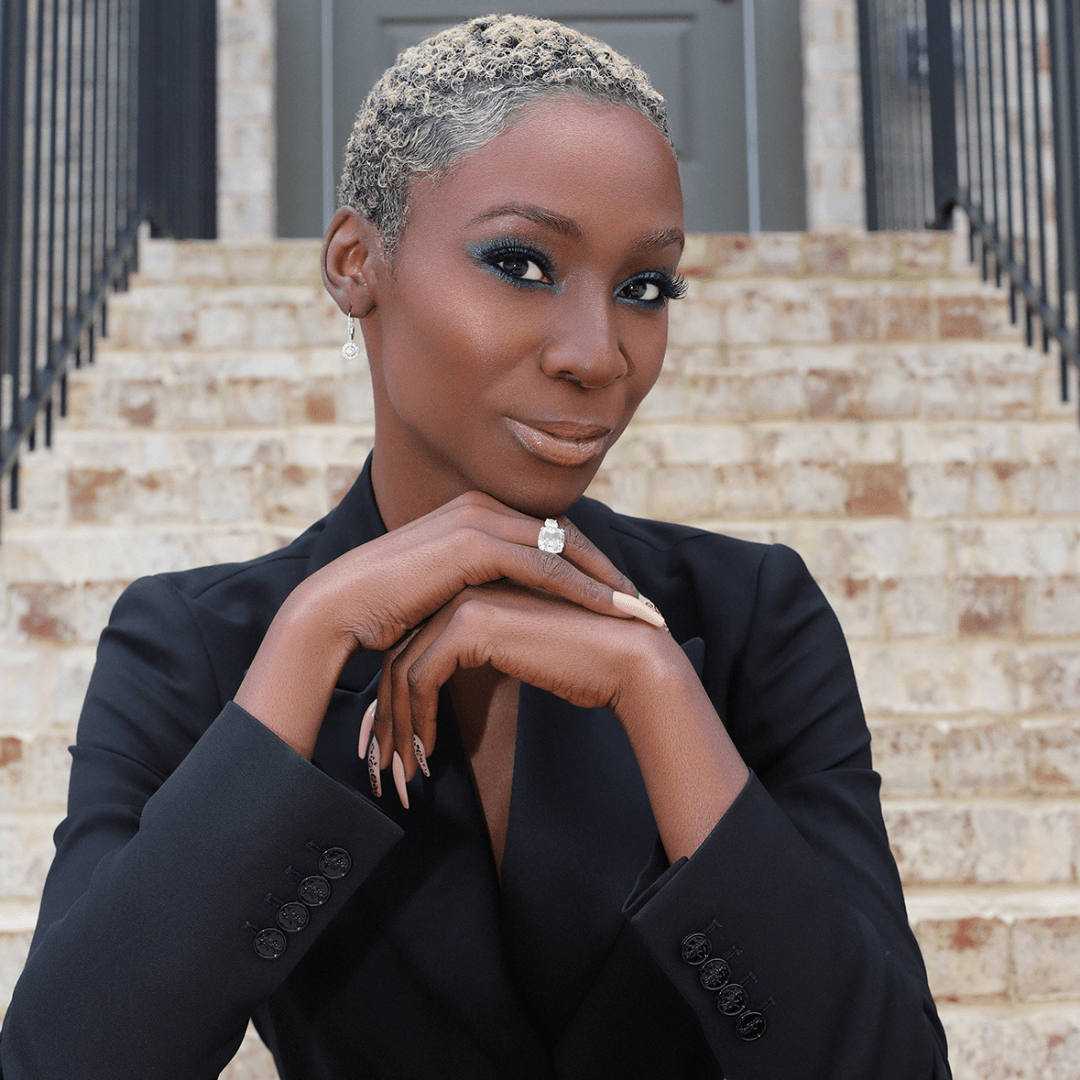
SOPHIE WILSON
(b. 1957)
In 1982, British engineer Sophie Wilson designed the ARM microprocessor core, which was a milestone in British engineering and is now used in thousands of devices, including smartphones, tablets, gaming consoles and broadband routers. Because of this, Wilson is said to be one of the architects of the modern world. When Wilson designed the ARM microprocessor, she found an ingenious way to increase the device’s power without creating needless complexity that hampered the processor’s speed. Wilson is currently a director at the technology conglomerate Broadcom Inc. She was awarded the Fellow Award by the Computer History Museum in California in 2012 for her work on the ARM processor architecture.” She also received the 2014 Lovie Lifetime Achievement Award in acknowledgement for her invention of the ARM processor, and, in 2020, she was honored as a Distinguished Fellow of the British Computer Society.
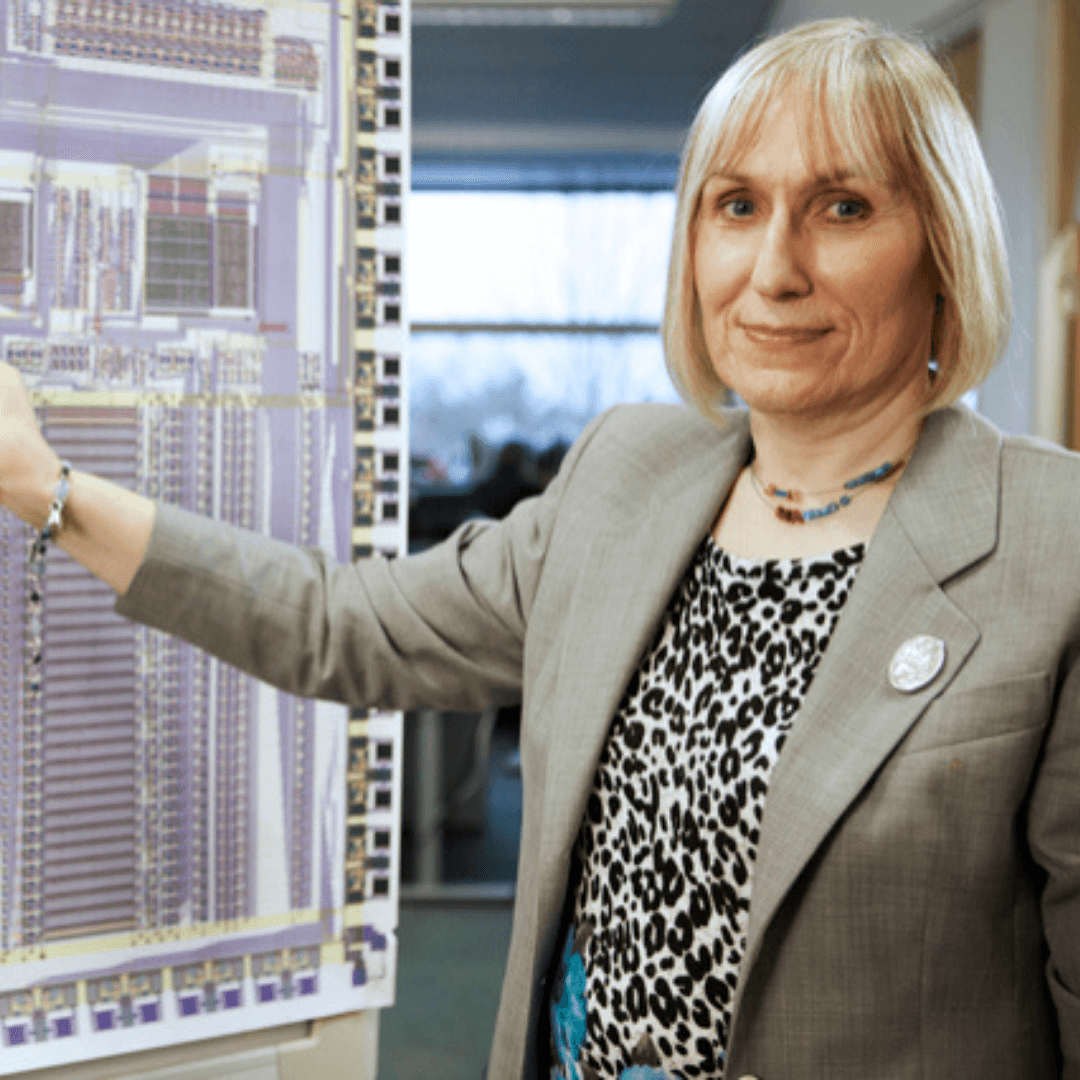
ANNA ANTHROPY
Anna Anthropy is an American video game designer and interactive fiction author. She is currently the game designer in residence at the DePaul University College of Computing and Digital Media. In 2012, she released Dys4ia, an autobiographical game about her journey with hormone replacement therapy that is designed to give the player a sense of her experiences as a trans woman. Anthropy's first book, Rise of the Videogame Zinesters, was published in 2012. In the book, Anthropy defends the cultural and artistic value of video games and emphasizes the need for a more diverse cast of voices in game development and design.
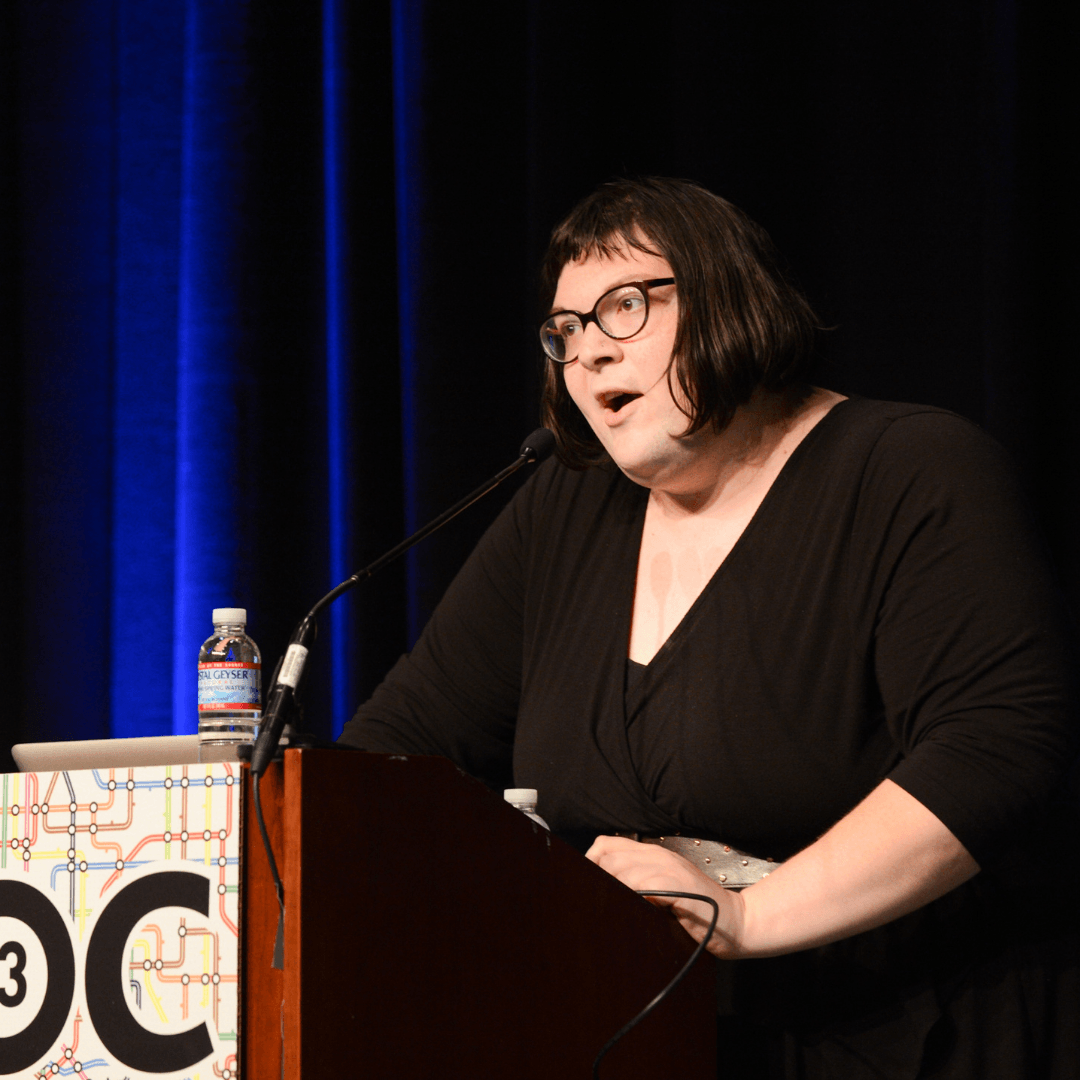
LYNN CONWAY
(b. 1938)
Lynne Conway is an American computer scientist, electrical engineer, inventor, and transgender activist who conceived ideas that disruptively changed the entire tech industry. She revolutionized information technology by inventing new methods that greatly simplified the design and fabrication of complex microchips. Throughout her career, she shared her knowledge with young people in STEM, both as a university professor and as an author of the seminal textbook on microchip engineering. Her work paved the way for the modern microchips found in almost all high-technology systems, including computers, mobile phones, and the internet. In 2020, 52 years after IBM fired her for being transgender, IBM publicly apologized to Conway and awarded her the rare IBM Lifetime Achievement Award.

CHRISTINE LOVE
(b. 1989)
Christine Love is a Canadian indie game developer and novelist. As a game designer, Love specializes in “visual novels”, a specific sub-genre of video games that emphasizes text-based story over gameplay. She first rose to prominence in 2010 with the release of her first major game, Digital: A Love Story, which tells the story of the protagonist's online relationship with a girl named *Emilia, and a mystery surrounding the murders of several AI programs. She then went on to release a number of sequels to Digital, including don’t take it personally, babe, it just ain’t your story and Analogue: a Hate Story, both of which proved wildly popular and garnered wide critical acclaim, with don’t take it personally winning The Daily Telegraph’s award for "Best Script" in its video game awards of 2011. Love describes her games as being about "our relationship with technology, about human relationships in general, and about seeing things from different perspectives.”
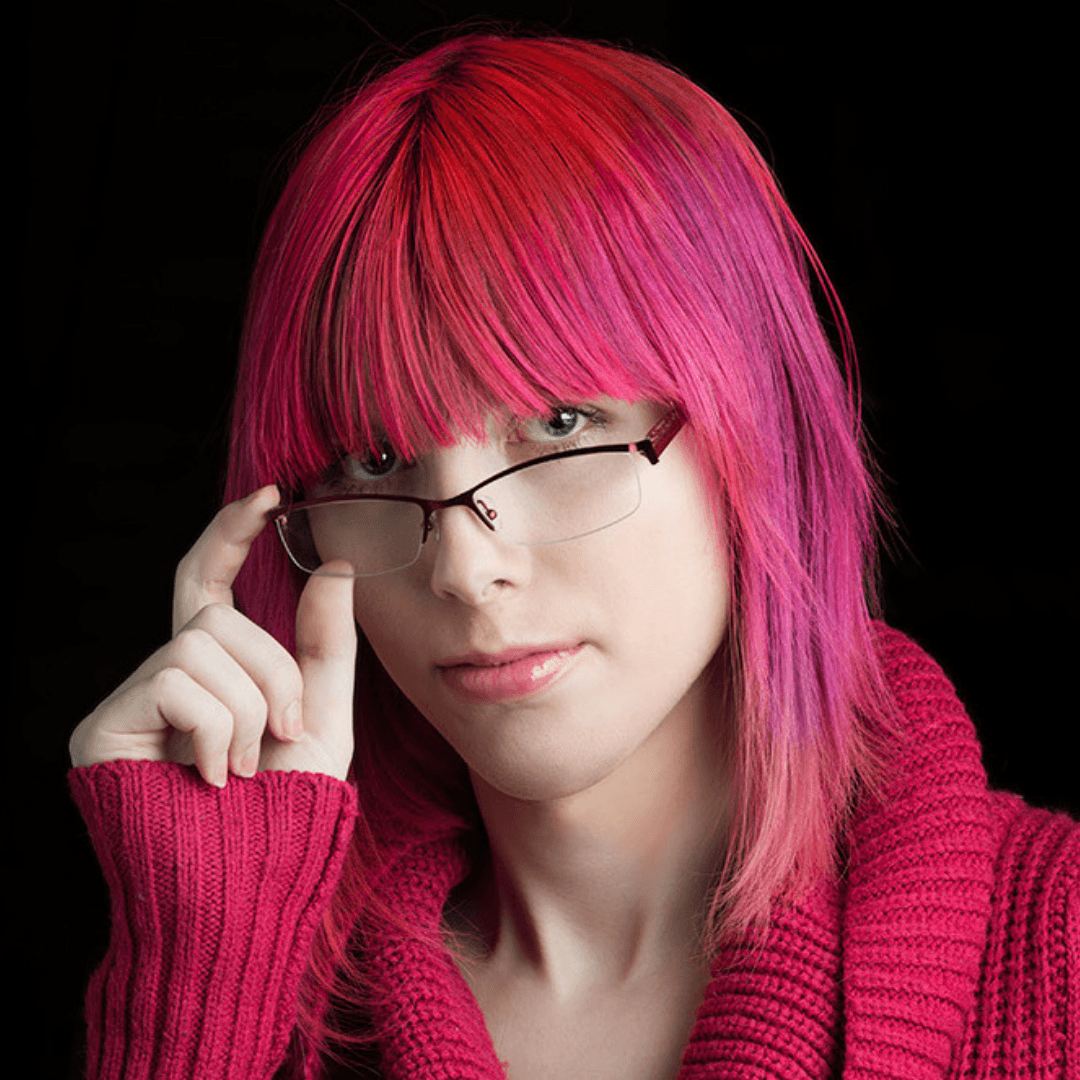
At The Coding Space, we believe that there is no code more important to crack than figuring out how to ensure equal opportunities for everyone who wants to enter the field of STEM. Click here to learn more about TCS’s commitment to gender diversity.